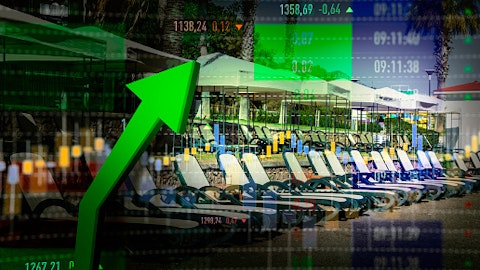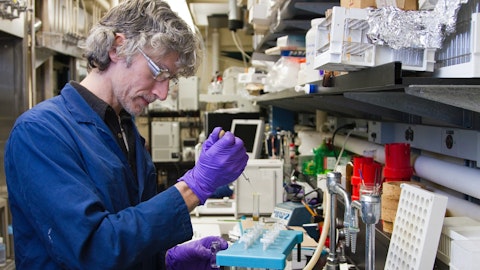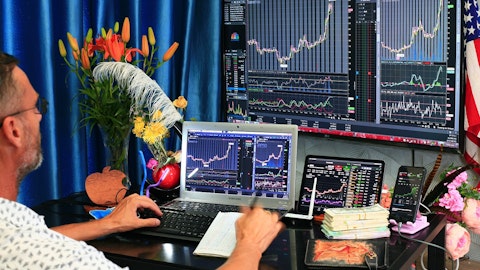The last part of your question was, does it affect you that there’s a slowdown, let’s say, in a lot of the CDMO market that I think is broadly tracking the macro environment today. Perhaps there is some effect of that, but we are expecting to use our facility not as a CDMO. So we’re not going to be taking inbound on molecules that we have not developed ourselves. So the pipeline that we expect to put into the manufacturing facility is molecules that have been done either internally or at AbCellera or that have been done at AbCellera in collaboration with partners. And so based on that, I think we’ve got a good line of sight as to what will be used in the facility.
Puneet Souda: Got it. And then maybe this is a sort of a tendential question. The Beacon platform for antibody discovery changed hands and now acquired by Bruker. Could you maybe update us on if that changes your thinking a bit on the sort of the competitive landscape there? And I just wanted to make sure what’s left on the litigation front there? If you could just clarify.
Andrew Booth : Yes, sure, Puneet, let me take that one. So as you know, the litigation with Berkeley Lights at the time and now Bruker started a couple of years ago, it went to — the response was an attempt to invalidate the patents, which then stood up at the IP — the IPR stood up in our favor and our patents are — have been declared legitimate and in full force. That litigation was stayed during that process and has now been unstated and the litigation is now underway. We intend to continue to pursue that through the courts now in the hands of Bruker, and we’ll wait to see what the outcome of that proceeding is, but we would expect that to continue over the course of 2024 and maybe even into 2025.
Operator: The next question will be from the line of Steven Mah with Cowen.
Steven Mah: Great. On the new partner adds, can you give us some color on what you’re seeing given the macro environment? Maybe give us some color on the level of your inbound and discussions with potential partners. And if these inbounds and discussions are weighted more to one type of player, larger or smaller. And I ask that given that the Prelude was a little bit on the smaller side.
Carl Hansen: Yes. So Carl, here, happy to take that. First, on the macro, I think you don’t have to be a biotech analyst to see that this is a bare market for biotech and has been for some time. So what that means is that there is absolutely a slowdown in the formation of new companies and financing new companies. The companies that are out are preserving capital. They are prioritizing programs. And all of that results in a smaller ocean of opportunities for partnering. So that said, we have, for the last two years, been consistently communicating that our focus is not on deal volume. Our focus is on finding strategic partnerships where strategic means one of two things. It either means that we found a company that is bringing a unique technology such as Prelude or a company that is bringing unique target insight and biology.
And that together with them, we have a great opportunity to make a therapeutic that we have conviction in and that we’re able to get a significant stake in that therapeutic. So that’s the first category of strategic. The second category is relationship building and setting up deeper engagements with some of the very large and well-enabled companies, companies like Regeneron, companies like Incyte. So examples from this quarter that line up with that. That means that we are looking at lower volume. It also means that we’re primarily looking at the bigger firms. The bigger firms are quite robust in this market. They’re continuing to invest in R&D. And so I don’t think that we’re going to see a lot of impact on that, and we’re just going to continue with our strategy.




